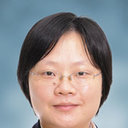The Long-Term Consumption of Ginseng Extract Reduces the Susceptibility of Intermediate-Aged Hearts to Acute Ischemia Reperfusion Injury.
Keywords
Abstract
A large number of experimental studies using young adult subjects have shown that ginseng (Panax ginseng C.A. Meyer) protects against ischemia heart disease. However, ginseng has not been explored for its anti-I/R effect and mechanism of action in the aged myocardium. The present study was designed to evaluate the effects of the long-term consumption of ginseng extract on myocardial I/R in an in vivo rat model and explore the potential underlying mechanism.
Young (6-mo-old) and intermediate-aged (18-mo-old) rats were gavaged with either standardized ginseng extract (RSE) at 80 mg/kg or vehicle for 90 days. The rats were sacrificed after LAD coronary artery ligation was performed to induce 30 min of ischemia, followed by 90 min of reperfusion. The myocardial infarct size was measured. Left ventricular function was evaluated using pressure-volume loops. The levels of survival, apoptotic and longevity protein expression were assessed through Western blot analysis. Myocardial pathology was detected through H&E or Masson's trichrome staining. We observed higher infarct expansion with impairment in the LV functional parameters, such as LVSP and LVEDP, in aged rats compared with young rats. Enhanced Akt phosphorylation and eNOS expression in RSE-treated aged hearts were accompanied with reduced infarct size, improved cardiac performance, and inducted survival signals. In contrast, p-Erk and caspase 7 were significantly downregulated in aged rats, suggesting that cardiomyocyte apoptosis was suppressed after RSE treatment. RSE also inhibited caspase-3/7 activation and decreased Bax/Bcl-2 ratio. Consistent with the results of apoptosis, Sirt1 and Sirt3 were significantly increased in the RSE-treated aged heart compared with vehicle-treated I/R, suggesting that the anti-aging effect was correlated with the anti-apoptotic activity of RSE.
These findings suggest that the long-term consumption of ginseng extract reduced the susceptibility of intermediate-aged hearts to acute ischemia reperfusion injury in rats. These effects might be mediated through the activation of Akt/eNOS, suppression of Erk/caspase 7 and upregulation of Sirt1 and Sirt3 in intermediate-aged rats.




